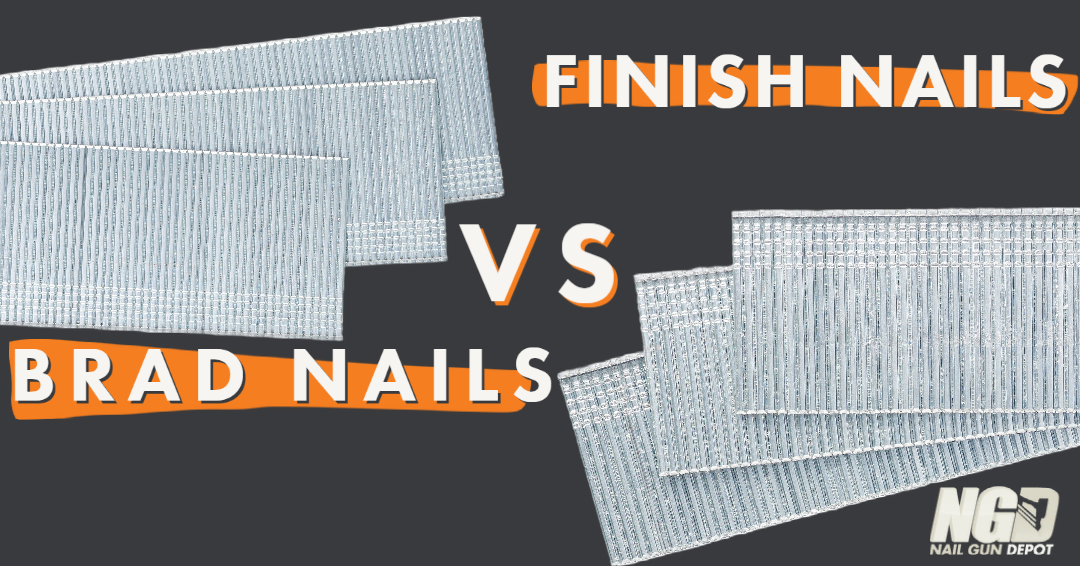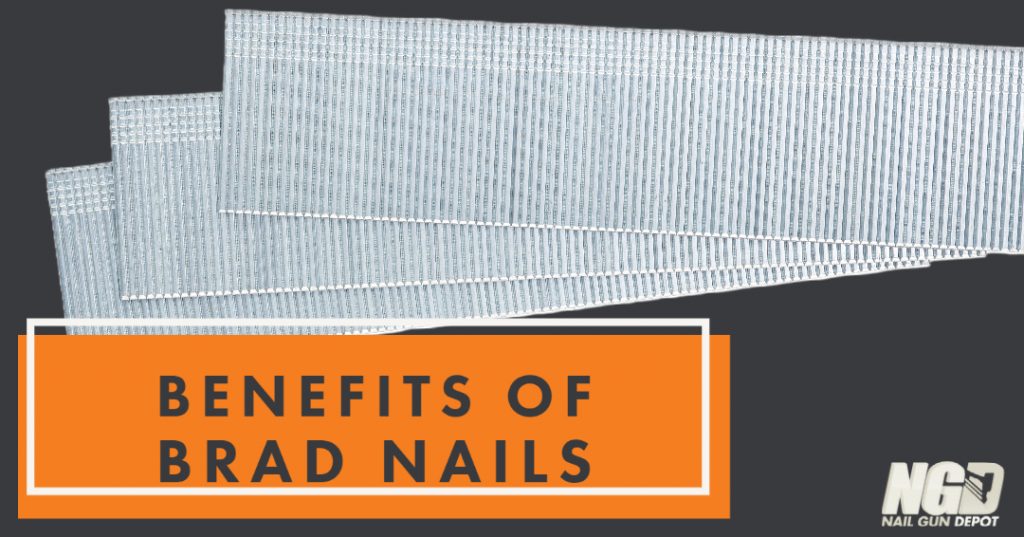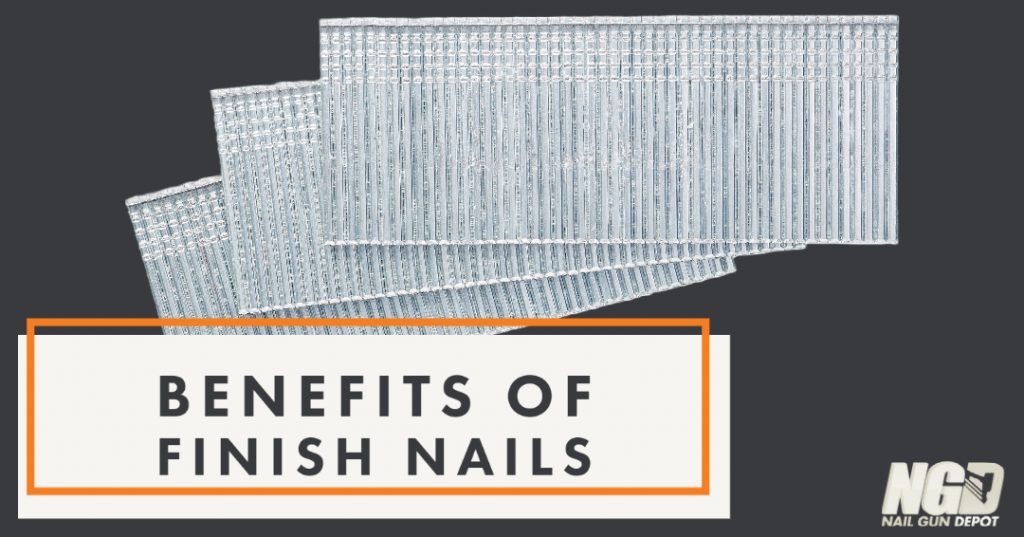The Difference Between Brad Nails vs Finish Nails

[Updated 02/23/2023]
Question: "What's the difference between brad nails and finish nails? Which should I use for my job?"
Answer: Whether to use brads or finish nails depends on your woodworking task and the amount of holding power you need. Let's look at the differences between the two kinds of nails.
Benefits of Brad Nails

Brad nails are formed from a fine, 18-gauge wire, so they are smaller in diameter than finish nails and typically have less holding strength. They're better suited for tasks like light decorative trim and molding, panel installation and crafts. Their size also helps prevent surface splitting, which can occur if the fastener is too large for the material it's being driven into.
One of the benefits to an 18-gauge brad is its size. Thanks to a smaller head and diameter, brad nails are easier to conceal in small pieces of wood trim. With a smaller head size, it's possible that the insertion point may not even need to be concealed with wood putty. In other words, 18-gauge brad nails provide a cleaner look than a finish nail without extra touch-up involved.
Benefits of Finish Nails

Finish nails are made from heavier 15- or 16-gauge wire, which means they can handle a greater payload. For larger trim, such as baseboards or crown molding, a finish nail is more suitable. A finish nail offers increased support and withdrawal resistance versus the brad nail, making it the better choice when installing larger trim and woodwork.
Because it leaves a more visible hole in the surface, a fully driven finish nail almost always requires follow-up attention—which includes being puttied over to conceal the "shiner" (the exposed insertion point of a nail).
According to Senco, "The initial tool purchased by most consumers is typically some kind of brad nailer for attaching finish molding. Most who have used a hammer to drive small brads know the frustration when these nails bend - not to mention the possibility for damage if using too much force. The brad nailer makes these small trim jobs a breeze, with high-quality results."

The fact is, most carpenters use a combination of finish and brad tools. If you're just getting started, it's probably best to compare your application against the tools you are considering. From there, consider the tool that will suit your overall needs best.
Shop Nail Gun Depot:
Brad Nails
Finish Nails
16-Gauge Straight Finish Nails
16-Gauge Angled Finish Nails
15-Gauge Angled Finish Nails (DA Type)
15-Gauge Finish Nails (FN Type)



Which nailer is best, 18g or 16g?